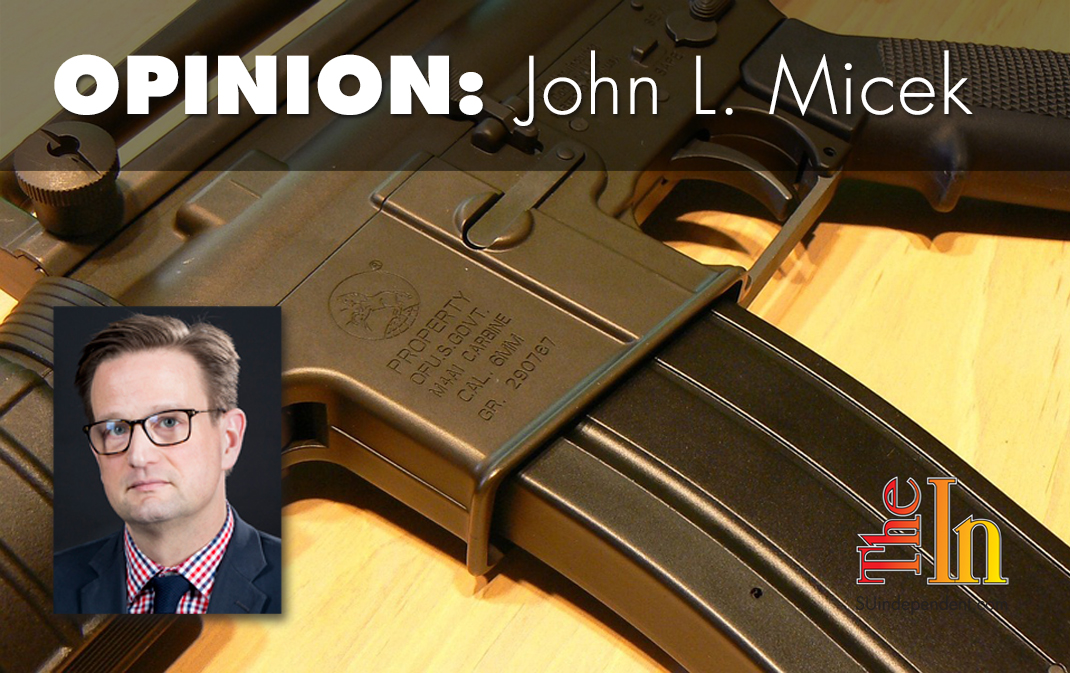
Why don’t we enact an assault weapons ban?
Six days. That’s how long it took New Zealand’s parliament, led by Prime Minister Jacinda Ardern with the support of opposition leaders, to ban military-style assault weapons in the wake of a deadly rampage at two mosques in Christchurch that claimed the lives of 50 people.
The speed with which the island nation acted was a triumph of political will in the face of unspeakable tragedy. And it holds lessons for American policymakers who have been utterly paralyzed in the face of mass shootings in our own houses of worship, schools, and public spaces.
Up front, it’s important to acknowledge that there are some material differences between New Zealand’s political system and our own.
Notably, there is no equivalent to our Second Amendment, which means that New Zealanders have no legal right to own weapons for self defense. In addition, New Zealand’s parliament is unicameral, which means there are far fewer political pinch points to derail such measures.
Compare that to the American federal system where bills can be derailed at any point by powerful committee chairpeople, by influential and deep-pocketed interest groups, by the president himself, and by the U.S. Supreme Court, which can make the ultimate call on a law’s constitutionality.
Most of the time, the system works, protecting the rights of the minority from the tyranny of the majority.
But when it comes to gun-control measures, from universal background checks to bans on bump stocks and high-capacity magazines, the exact inverse is true. A noisy minority backed by a powerful lobbying group in the National Rifle Association has effectively stymied passage of even the most basic modifications in federal law.
Meanwhile, in the more than six years since the massacre at Sandy Hook Elementary School in Newtown, Connecticut, America has seen 2,000 mass shootings — defined as an incident in which “four or more people (not including the shooter) were shot, but not necessarily killed,” as Vox reports. That’s resulted in 2,200 deaths and 8,200 people wounded.
But when it’s counted, our elected leaders have come together with relative speed. On Sept. 14, 2001, just three days after the 9/11 attacks, the U.S. House and Senate approved a resolution authorizing the use of military force to hunt down and punish those responsible for the carnage.
Americans rallied in the days after the 9/11 attacks, in which 2,996 people were killed — including the cowards who hijacked the planes — and more than 6,000 people were injured. That’s a death toll comparable to the one exacted by mass shootings since Newtown, which were perpetrated by people who can only be described as domestic terrorists.
Then, as now, there is a majority will to act. Six in 10 respondents to a March 1 Quinnipiac University poll said they supported stricter gun laws in the United States. And nearly three-quarters of respondents said the nation needed to do more to address gun violence.
Critically, more than nine in 10 respondents, including 89 percent of Republicans, said they supported mandatory background checks on all gun purchases, which is the most basic step that can be taken to curtail violence.
And 86 percent of all respondents, including 80 percent of Republicans, said they supported a background checks bill passed by the majority-Democrat U.S. House last month that’s unlikely to receive a vote in the Republican-controlled Senate.
Asked about the New Zealand vote, U.S. Sen. Pat Toomey acknowledged that it was “frustrating” that the Senate has not been able to move on background checks.
“I’m not for banning whole categories of firearms,” Toomey said. “But it’s very frustrating that we didn’t have a vote in the Senate. I’m still trying to persuade more colleagues to embrace [this legislation].”
Shira Goodman, the executive director of CeaseFire Pa., a Philadelphia-based advocacy group that favors stricter gun-control, said she believes Americans have “collectively accepted 40,000 gun deaths a year as normal. I don’t know when or how that happened, but it doesn’t make sense.”
Even with District of Columbia v. Heller, the 2008 U.S. Supreme Court decision that reaffirmed the Second Amendment right to firearms ownership, Goodman still thinks it’s possible for Congress and the nation to rally around an assault weapons ban.
“We’ve allowed a minority to set the agenda and that needs to totally shift,” Goodman said. “I think with the right leadership, and with what seems to be a differently energized and focused pool of civilian activists, we could do it.”
An island nation in the South Pacific showed the world that with the right leadership and the political will behind it, such things are possible.
The world’s greatest democracy got schooled in its own game. We’re out of excuses.
The viewpoints expressed above are those of the author and do not necessarily reflect those of The Independent.
How to submit an article, guest opinion piece, or letter to the editor to The Independent
Do you have something to say? Want your voice to be heard by thousands of readers? Send The Independent your letter to the editor or guest opinion piece. All submissions will be considered for publication by our editorial staff. If your letter or editorial is accepted, it will run on suindependent.com, and we’ll promote it through all of our social media channels. We may even decide to include it in our monthly print edition. Just follow our simple submission guidelines and make your voice heard:
—Submissions should be between 300 and 1,500 words.
—Submissions must be sent to editor@infowest.com as a .doc, .docx, .txt, or .rtf file.
—The subject line of the email containing your submission should read “Letter to the editor.”
—Attach your name to both the email and the document file (we don’t run anonymous letters).
—If you have a photo or image you’d like us to use and it’s in .jpg format, at least 1200 X 754 pixels large, and your intellectual property (you own the copyright), feel free to attach it as well, though we reserve the right to choose a different image.
—If you are on Twitter and would like a shout-out when your piece or letter is published, include that in your correspondence and we’ll give you a mention at the time of publication.




The world’s greatest democracy just got schooled at it’s own game? Which democracy would that be? You do understand that the USA is NOT a democracy, right? We are a constitutional republic…and that is no small difference.